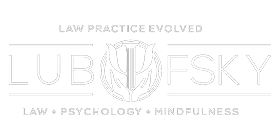America appears largely entrenched in an approach to life that emphasizes immediate remedies to unpleasant feelings and situations. Visit most physicians complaining of anxiety, sadness, or digestive problems and you are likely to leave with a prescription for some pharmaceutical remedy. If sitting in boredom wondering where one’s life is going, it is easy enough to turn on the television of log on to Facebook to connect with a stream of underlying messages that if you go here or there or do or buy this or that, you will realize that illusive state of “happiness.”
Despite living almost continuously in unconscious alternating states of avoidance or grasping, we may nevertheless experience sporadic moments in which we feel grounded in a more foundational sense of peace and calm. Such moments most often arise when, for an instant, we have ceased “wanting” anything to be different for the way we really perceive things to be.
In the case of legal problems with which one may be faced, the collective conditioned thinking with which most of us are imbued says that we need to “get the problem solved,” “put it behind us,” and then things will be “fine.” So an individual facing legal difficulties will eventually find a lawyer who may meet with him or her once or twice to identify issues and gather facts, and will then take actions needed to – more or less – resolve the legal issues and allow the client to “move on.”
In a real sense, this approach to legal problems mirrors the response of most people towards other problems in their lives – actions take to just make the “problem” go away. But clients who approach their legal situations in this way are very likely to again find themselves in similar situations in the future. The extent to which these patterns are repeated will prove a function of the extent to which clients are able to sit with and learn from their experiences and reactions that led or contributed to their legal situations in the first instance.
Rather than viewing legal situations as ugly realities of life in contemporary America that need to be resolved or avoided as expeditiously as possible, clients will be better served by learning to embrace these situations as prime opportunities to perhaps sit with these situations a bit longer in a way that can facilitate a realization that their actions need not automatically spring towards avoidance or grasping for some conditioned, ego-driven ideal of “happiness.”
Holistic law practice is optimally geared towards approaching legal situations in a way that can facilitate this transformation. As a holistic lawyer, I take the time to sit with clients to more fully connect up with present-moment experience. This approach can help clients dis-identify from conditioned thinking and habitual reactions that have failed to serve them well in the past.
To learn more about holistic law practice, contact Attorney Michael Lubofsky at (415) 508-6263 or visit http://www.Holistic-Lawyer.com.
